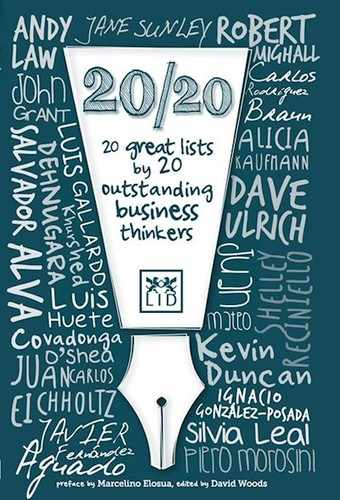1.
FOOLISHNESS AND PLAY
“The fool doth think he is wise, but the wise man knows himself to be a fool.”
To make decisions when we don’t know the answer is surely foolish, yet sometimes we have to act the Fool. In Tarot cards, the Fool is traditionally depicted as being someone who is walking towards the edge of a cliff, and is about to step off. He carries a bag with all the possessions that he might need for the journey. He holds a flower, representing an appreciation of beauty, and a staff, a reliable tool for the journey. He faces northwest – the direction of the unknown.
The Fool is an archetype that represents all possibility and therefore it is an image for fluidity and flexibility. The Fool is restless but wise and he doesn’t sit on his laurels. He is an adventurer, a wanderer, he knows when it’s the right time to move and when to camp out, but he doesn’t know where to go. His character is childlike, open, honest and unconscious; and we can think of him as a free spirit, following nature rather than a pre-planned path. He would be called “naive” in our modern-day world. The late British painter Cecil Collins describes the Fool as .".. the essential poetic integrity of life itself, clear and naked, overflowing in cosmic fun; not the product of intellectual achievement, but a creation of the culture of the heart. A culture of the genius of life.”104
The Fool’s main message is that over-cautiousness is not good. He asks us to take a leap of faith and to trust in the journey. As Steve Jobs encouraged the graduating class of 2005 at Stanford University: “Stay hungry. Stay foolish.”
For Rajeeb Dey, the CEO of Enternships, the youngest member of the World Economic Forum Young Global Leader cohort of 2012 and a co-founder of StartUp Britain, a campaign for entrepreneurship by entrepreneurs, foolishness was easier at the start of the journey. Now that he is an experienced entrepreneur, it takes more courage to step into the unknown. “For me, it all started with a problem that was bothering me. I didn’t actually know it then, but that was the first itch of entrepreneurship – the fact that there was something wrong, and I wanted to know if I could fix it.”
Rajeeb was sitting in his bedroom in Oxford, trawling through the various job schemes open to him once university came to an end. Eyes glued to his laptop, the same words kept popping up in front of him: “accountancy,” “consultancy,” “law,” “management.” “All gleaming, clear, success-ridden paths for people who knew that gleaming, clear, success-ridden life in a big company was for them. But I wasn’t interested in being a small part of something very big. I wanted to set up on my own. Where was the path for that?”
It occurred to Rajeeb that the local startups he’d dealt with as part of his extra-curricular passions were far more suited to people like himself – people who enjoyed the challenge of working in small, agile teams, of making a difference from the start and of responsibility, accountability and passion. “And surely a bright young startup needed bright young minds far more than the big companies did? It was annoying. It bothered me. Surely there was something I could do about it.”
The only thing he knew at that stage was that he wanted to take on this challenge. This turned out to be significant for Rajeeb. “I think if I’d had any real idea about how much I was going to have to learn to get this problem solved, I would have been overwhelmed by the journey ahead of me. As it was, I was able to have a great sense of clarity from the outset.” The blank sense of unknown that lay ahead of him meant that he could keep the problem he was trying to solve at the forefront, at the centre of everything he wanted to do.
As a bright-eyed, naïve student, Rajeeb carried the fact that he didn’t have all the information, finding his way as he went along, as an advantage. “Going into something with a lot of unknowns makes you keep what you do know, the core of your mission, at the heart of everything. It keeps things clear.” At the same time, his journey to creating his startup Enternships would have been a lot more efficient, a lot less roundabout, had he known a few things at the start. “My point is not to champion the blind leaping into a project without understanding how you’re going to get started, far from it. It is simply that as entrepreneurs, as anyone starting out on a challenge that might seem large, it’s important to find a way to free yourself from fear.”
Now Rajeeb no longer has the luxury of going into a project with the same glorious naivete he had when he was a student. Sadly, he says, the freedom of leaping into the unknown isn’t always appropriate. But, amongst all the shouting of the different responsibilities, of the tasks ahead and of the work to be done, he makes sure he keeps asking himself – “what if I didn’t know any of this? What would remain? What problem am I trying to solve and why am I trying to solve it?” “That still leads what I do, and I hope it always will. When I started out, the unknowns ahead of me make it easy to be brave, to take a leap. Now that the knowns have started to creep in, bravery can seem harder. But ultimately, it still comes down to clarity of mission, of those first couple of questions. Keep that at the front, and you can take on anything.”
